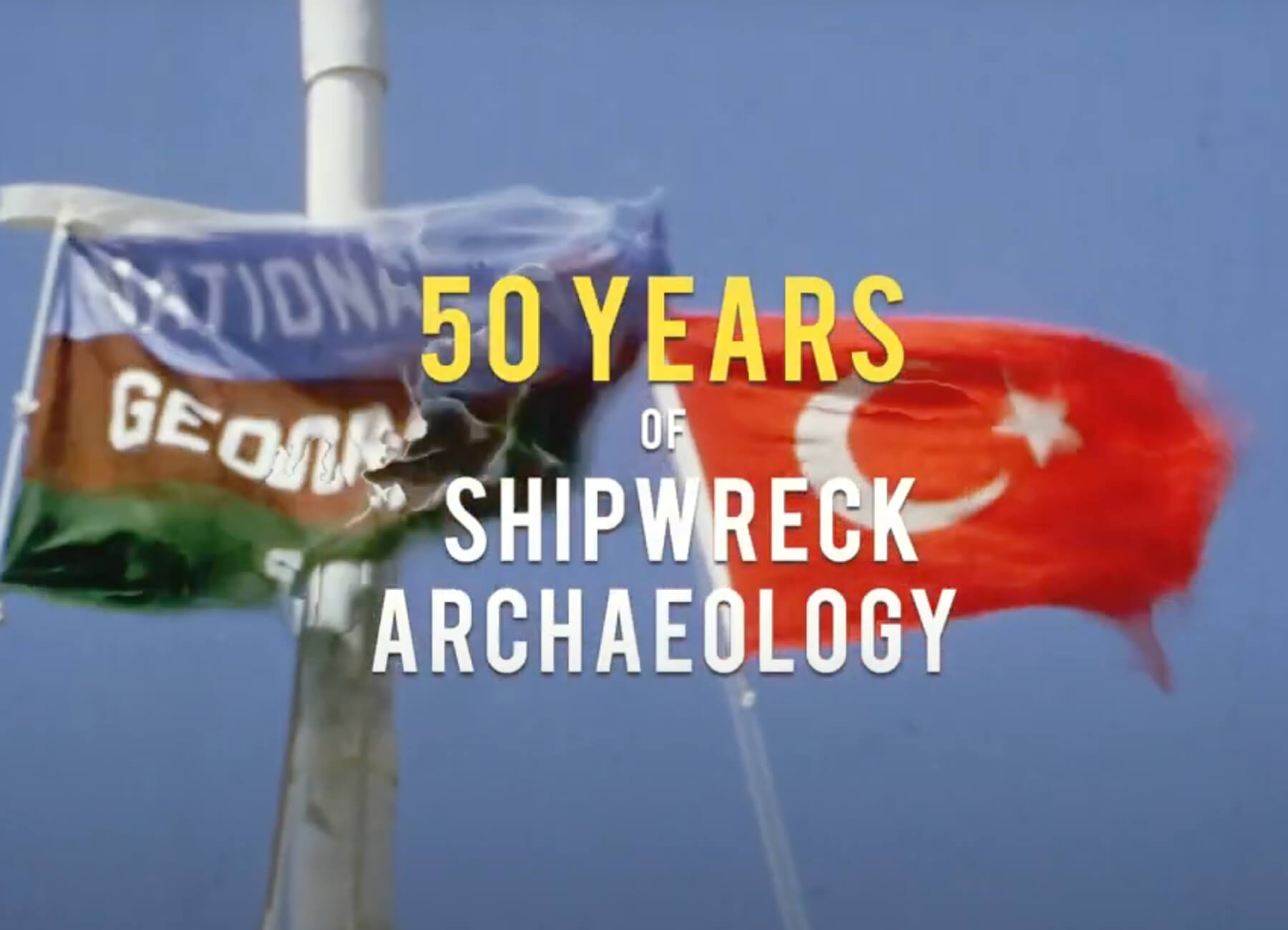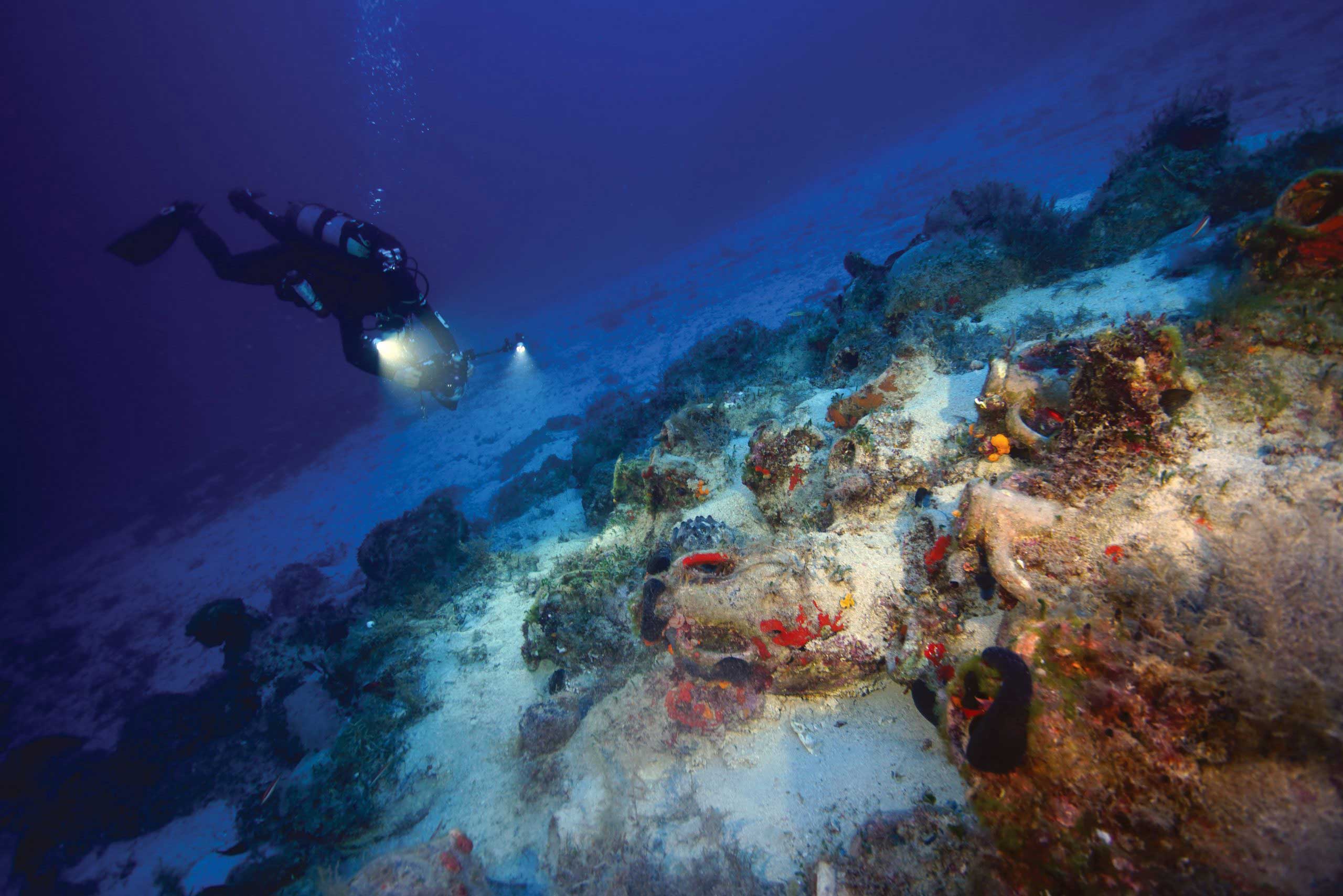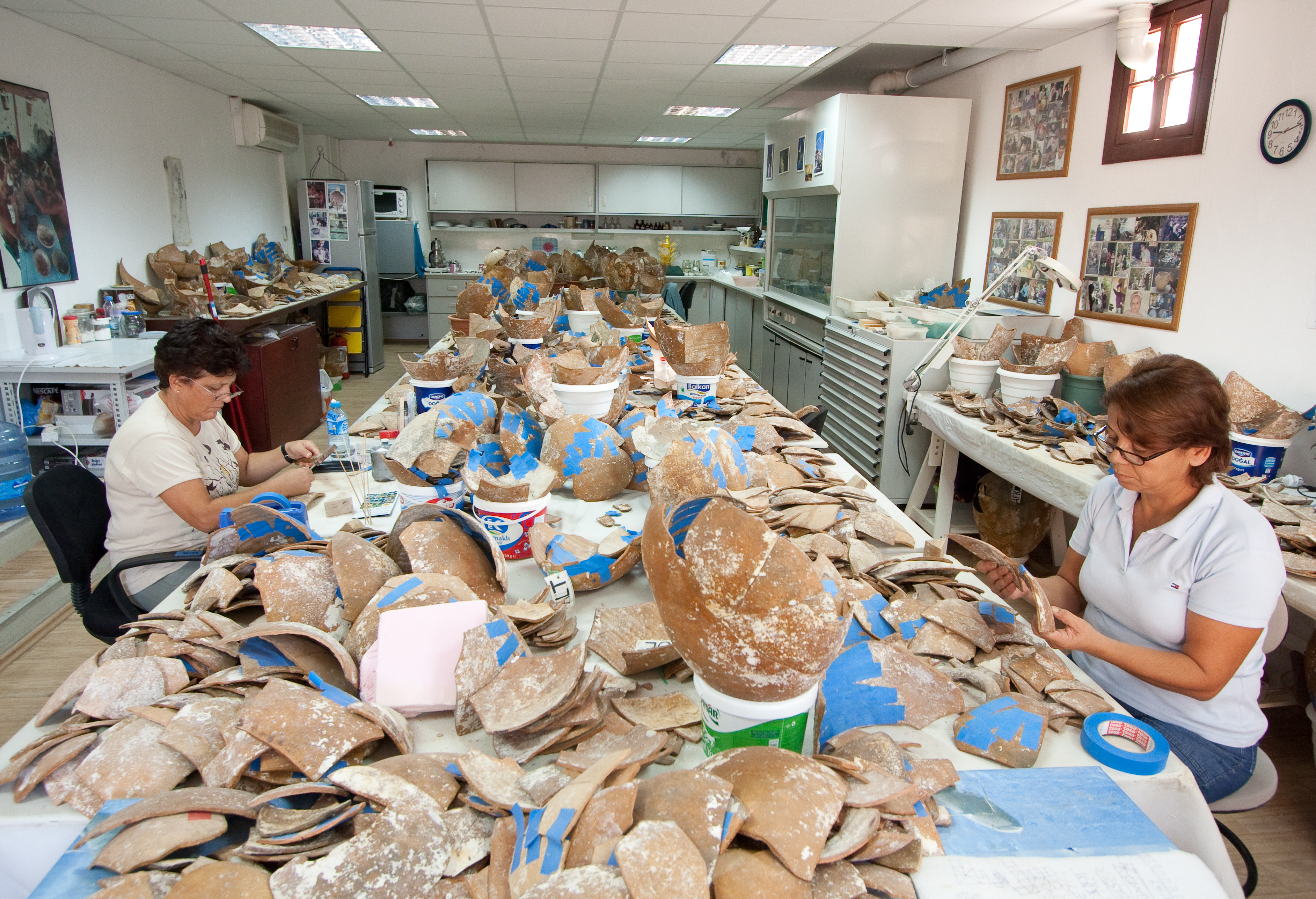In 1973, INA Founder Dr. George F. Bass (1932-2021) organized INA’s first field school and, together with his wife and INA Co-Founder Ann Bass, hosted the first meeting of the INA Board of Directors. INA Executive Director Cynthia Eiseman published the first issue of the INA Quarterly and the United States government granted INA status as a non-profit 501(c)3 organization.
For half a century, INA archaeologists have conducted fieldwork and research leading to the location, excavation, preservation, and publication of dozens of shipwrecks and other sites of nautical significance. In 2023, we celebrate INA’s 50th year with webinars, a special commemorative 50th volume of the INA Quarterly, and a new film that tells the story of INA’s first shipwreck survey in 1973. We are forever grateful to the hundreds of donors, colleagues, students, volunteers, and staff members who helped INA reach this important milestone.
We invite all members of the INA family new and old to help us commemorate INA’s 50th year by becoming more involved: attend an INA Wednesday Webinar, make a donation to support an INA project, shop INA’s online store, or give the gift of INA membership. When you become a member of INA, you help bring history to light through the science of shipwreck archaeology!
“”
Debbie CarlsonPresident, The Institute of Nautical Archaeology
What We Do
The Institute of Nautical Archaeology (INA) is a non-profit, international research organization founded in 1972 by Dr. George F. Bass †, who pioneered the science of archaeological excavation under water. The broad scope of what we do involves remote sensing, underwater excavation, digital recording, decompression diving, artifact conservation, scientific analysis, and lots and lots of research
Who We Are
For more than 40 years, INA has been affiliated with Texas A&M University (TAMU). Numerous INA officers are faculty in TAMU’s graduate Nautical Archaeology Program (NAP), which offers an M.S. in Maritime Archaeology and Conservation and a Ph.D. in Anthropology. In collaboration with NAP faculty, NAP graduate students, and INA research associates, INA sponsors projects all over the world.
How We Do It
INA is sustained by a dedicated, talented, and active Board of Directors. We are also grateful for the generous support of our donors, members, and institutional partners. Because the largest number of ancient shipwrecks INA has excavated are in Turkey, we built the Bodrum Research Center (BRC), with offices, conservation laboratories, a dormitory, and a research library.
Bringing History to Light through the Science of Shipwrecks
Becoming an INA member is one of the best ways to support our projects around the world.
George F. Bass One of TIME Magazine’s Great Scientists
The Institute of Nautical Archaeology (INA) would not exist were it not for the vision of our Founder George F. Bass †, the Father of Underwater Archaeology. In 1960 George directed the first scientific, archaeological excavation of a shipwreck, following the same principles and precision that guided terrestrial excavations. In the 1970s he founded INA and then found INA an academic home at Texas A&M University. His many contributions to the field of nautical archaeology were celebrated most recently in 2018 when he was named one of TIME Magazine’s Great Scientists: The Geniuses and Visionaries Who Transformed Our World. How does it feel to be in the company of Albert Einstein, Galileo Galilei, and Howard Carter? Bass says he is “flattered and thrilled.” INA is deeply honored too! Congratulations George!
“Since at least the Bronze Age, seafaring has been key to cultural progress. Ships are in some cases the most technologically advanced equipment a culture would develop—their space shuttles. So to really understand the ancients, you have to be able to understand how they approached the sea, and the only way to do that is to excavate shipwrecks.”
George Bass †Founder, The Institute of Nautical Archaeology






